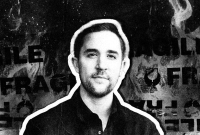Support strong Canadian climate journalism for 2025
Residents of Jasper, Alta., who lost their homes in last month’s wildfire face unique rebuilding challenges tied to leasing provisions nearly as old as Canada, followed modern rules dictating what they can and can’t construct.
Lawyer Jessica Reed said property owners in the townsite in Jasper National Park own their buildings but, unlike other municipalities, don’t own the land they sit on.
"The actual owner of the land, even if you looked at the land title, is the King himself," said Reed, a partner with a firm that has offices in four Rocky Mountain municipalities, including Jasper.
This means that each property owner in Jasper, like those in other communities located within a national park, is a leaseholder with the Crown and must make annual payments tied to property values, Reed said.
The Canada National Parks Act also stipulates the leases are usually for 42-year terms, although some are shorter, and renewing involves renegotiating terms of the leases.
Reed said this has already caused headaches for Jasper homeowners, as banks sometimes refuse to issue mortgages if the existing lease on a property is shorter than the prospective mortgage term.
That problem could become much bigger, given 358 homes and businesses in the town of 5,000 people were recently levelled by fire, she said.
She's concerned the leases may impede rebuilding efforts and potentially cause financial harm.
Residents and all park visitors were forced to leave on the night of July 22. They remain out and, although the fire is extinguished in town, crews are still fighting flames in the park.
Reed said those who don’t want to rebuild may also face challenges.
There have been instances in the past where property owners have taken insurance payouts after their homes were destroyed, rather than electing to rebuild, only to be blocked by Parks Canada from selling the vacant land to a prospective buyer, she said.
"One owner wanted to take a buyout and then just sell the vacant lot. And Parks Canada said 'No, you cannot sell a vacant lot. You need to sell a new build,'" Reed said.
"What I'm freaked out about here is people are a couple weeks into talking with their adjusters and they're looking at their buyout values, and they're thinking, ‘That sounds good.’"
Historian Alan MacEachern with Western University said the lease system dates back to the 1880s, shortly after Canada's first prime minister, John A. MacDonald, and the federal government took inspiration from the United States and made Banff National Park the country's first.
At the time, MacEachern said MacDonald wanted to make sure leases were given to the wealthy to ensure buildings in Banff, Alta., were as remarkable as the scenery.
Over the years, the government made many changes to the system, MacEachern said, such as lengthening the lease terms to 42 years from the original 21 and introducing renewable leases, but shortly after made them non-renewable again.
MacEachern said the upshot is leaseholders feel the government has too much power, while Ottawa is concerned it gave up too much control.
"Basically, they set up a system in the late 1800s and early 1900s that on the one hand helped create Banff and other places but in a way made nobody happy,” MacEachern said.
Nowadays, these leases don't necessarily govern the day-to-day lives of park residents, Reed said, but they're "powerful,” frustrating documents.
"At the end of the day, for the person that's actually buying a house, it looks normal," she said. "It's the lawyers -- we pull our hair out."
Once the lease problems are solved, Jasper homeowners need to follow two sets of rules for rebuilding.
The town's land use policy dictates what kinds of buildings can be built and where. And Parks Canada's building regulations covers things like acceptable home exterior colours and roofing materials.
Reed said the fire has no effect on the leases that Jasper residents hold, but rebuilding will require getting all the necessary Parks Canada approvals, just like they need for home renovations.
"It's a pretty slow process to get development approved," she said.
However, Reed added that she's confident Parks Canada will be flexible in the months and years to come. And officials have indicated as much.
This week, Jasper Mayor Richard Ireland and Parks Canada officials told a town hall for evacuees that an exemption will be made to the rule outlawing new mobile homes in Jasper for those who lost their mobile homes to the fire.
Both Parks Canada and the Ministry of Environment and Climate Change, which is responsible for Parks Canada, did not respond to emailed questions about leases and rebuilding in Jasper.
This report by The Canadian Press was first published Aug. 9, 2024.




Comments
Because the first paragraph makes no sense, and this is a republished CP article, I searched a phrase to see if some other outlet also republished it.
Sure enough.
Published on CNO (nonsensical):
"Residents of Jasper, Alta., who lost their homes in last month’s wildfire face unique rebuilding challenges tied to leasing provisions nearly as old as Canada, followed modern rules dictating what they can and can’t construct."
Published elsewhere (sensical);
"Residents of Jasper, Alberta, who lost their homes in last month’s wildfire, face unique challenges in rebuilding. They’re created by rental arrangements that are almost as old as Canada, coupled with modern rules dictating what can and can’t be built."
Where was the sloppy copy-and-paste done?
One quote from a lawyer seemed odd, given the general need for due diligence in real estate transactions (usually executed by a lawyer and the results passed along to a buyer):
"One owner wanted to take a buyout and then just sell the vacant lot. And Parks Canada said 'No, you cannot sell a vacant lot. You need to sell a new build,'"
Logic suggests that this limitation would have been identified, in the course of due diligence, prior to the buyer actually signing the purchase agreement. Similarly, any bank restrictions on lending would have been either discovered when financing was arranged prior to purchase or, in the case of a cash deal, ought to have been similarly divined by the lawyer in pre-purchase due diligence.
I've no idea whether Parks Canada would be permitted to change the rules of a lease upon renewal but, one presumes, that possibility would also have been identified by a lawyer prior to initial purchase.
In short, is it not the case that, because all of these concerns would/ could have been identified in due diligence (title search, etc.) by a competent lawyer, there is nothing to see here except a PR effort to pressure Parks Canada to change their rules for the financial benefit of a few leaseholders who, tragically, lost their buildings?
What am I missing or have misinterpreted?
You aren't missing anything. The country (Canada) owns the land and controls the use via leases. In this context, Parks Canada could buy out the lease term and return the land to park ecology or fire breaks, rather than permitting rebuilds.
Even the wording in this article is biased and not well considered, the word "dictate", for instance, is used repeatedly. For the privilege of living in a National Park it is perfectly reasonable to have limits on the size and design of structures built there, and leasing land in a National Park rather than owning is also entirely reasonable, otherwise fee simple ownership would increase prices astronomically, and leave the park with no control whatsoever on what is done there.
Having owned a cabin in Waterton Lakes National Park, I can attest to what happened when there were no controls - a truly inappropriate concrete house was built that remains a complete eyesore, and some houses were enormous - 1600 square feet is perfectly reasonable.
Remember, living in a National Park is a privilege and unmanaged development would ultimately erode the beauty, enjoyment and value of the park.